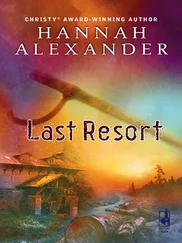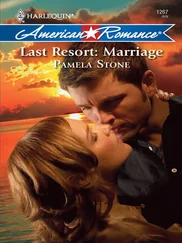“All right,” she repeated. But it wasn’t all right, she thought. Everything had changed.
“Why don’t you try to sleep a little more?” she suggested in the gentle, controlled tone of voice she would have used to a fretful child. “I’m going out now, I have some errands.”
“Yeah. I might,” Wilkie agreed, subsiding against the flamingo pink pillows.
“I’ll be back soon,” she lied.
This time there was no answer. Jenny left the bedroom, descended the stairs, got into the car, and drove to Artemis Lodge.
Alone in the house, Wilkie Walker did not sleep, but rather fell in and out of a restless doze. He was no longer in pain, but he felt heavy and waterlogged, like something washed up on a beach. Last night, still aching all over in spite of the drugs, he had rejected the little doctor’s diagnosis. In the morning, though, after speaking to the senior physician, he had had to consider that they might both be right. If so, he had not had a heart attack, but had passed a painful but non-life-threatening gallstone. Also, if the doctors were correct, he did not have cancer of the colon and was therefore not going to die agonizingly and shamefully in a few months, unless he killed himself first.
After the doctor had left a cold wave of rage and depression had washed over him. For years more, if the man was right, he would not only live, he would have to go on playing the worn-out part of Wilkie Walker, formerly famous naturalist and environmentalist. He would have to continue writing and speaking: shouting about all that was going wrong in the world. Greed, stupidity, waste, the exploitation and extermination of species, the destruction of the environment, it’s happening now, you’ve got to do something about it! He had shouted for nearly fifty years, his voice growing weaker every year. Most people who heard him didn’t give a damn. The few who seemed to care were mostly either lying or incompetent. Now he could go on shouting for years more, while the world continued to spiral downward, into the dark and muck.
But I don’t have to go on, Wilkie thought. I know the way out: it’s located just off Higgs Beach. I can still swim away from life whenever I want, and no one will ever know it wasn’t an accident. Or maybe they’ll think it was a heart attack, proving the doctors wrong. And they could be wrong, after all. He didn’t have the strength for it today, but tomorrow, or the next day—
It wouldn’t be the same, though. If you’re terminally ill, killing yourself is an act of courage and generosity to your survivors; if you’re healthy, it’s cowardice. Of course if he was successful nobody would know. But he would know, though not for very long. Lying in bed, with the warm wind blowing the elegant shadows of palm fronds across the flamingo pink wall opposite, Wilkie heard his own breath come shallow and fast; his head spun.
If I’m not terminally ill, I probably should hang around for a while, he thought, so as to get The Copper Beech into final shape, get all the graphs and tables and illustrations right. That could take a month, maybe two months ...
To his own surprise, at this idea Wilkie felt not a darker wave of depression, but a kind of dizzy euphoria, like that of a prisoner temporarily reprieved from execution. He was going to live, to survive for a little while at least: he would be here tomorrow and the day after tomorrow and next week and probably next month. He glanced out the window, where two bright green palms tossed against a bright blue sky. They were alive, and so was he.
Maybe it’s like Elisabeth Kübler-Ross’s stages of dying, he thought. If death was what you’d expected and sought for months, the news that you weren’t necessarily going to die soon produced the same series of emotions: first denial, then rage, then bargaining, then depression. After that there was nothing left but stage five, acceptance.
If he didn’t drown himself, he would have to go on living, with all that implied. In fact the next few months would be hell, because of all the stupid and unnecessary jobs he’d taken on in the belief that he’d never have to perform them: the lectures, the meetings, the articles and letters of recommendation and book blurbs he’d promised to compose, the conferences he’d promised to attend. Some of them Jenny could write and cancel, giving some excuse (what?), but each excuse, each withdrawal, would create resentment and ill will somewhere in America or, in a couple of cases, abroad.
And there were jobs too immediate for cancellation. He had, for example, promised to appear on a panel at a symposium here in Key West a few weeks from today on The Writer and Nature. A younger and more fashionable naturalist from out of town had opted out, and Wilkie had agreed to fill in, thinking at the time that when the day came the only thing he would be filling was a watery grave.
There was also Jenny to consider: his wife, his one true love. For months he’d been trying to shield her from his illness and his rage and his despair, and from what he planned to do about them. With great difficulty, he had been avoiding her so as not to break down in front of her. As a result he had seemed—how had she put it, with her usual gentle tact?—“very strange and unfriendly.” And also, as a result—Wilkie groaned and turned over in the hot, rumpled bed—Jenny had come to believe that he no longer loved her and was screwing that ninny Barbie Whatshername.
And it was not, Wilkie realized, completely irrational for Jenny to believe this, considering the way he had been behaving. And considering how the world went today. Statistically, genetically, he was aware, a man of his age was supposed to wish to discard his aging wife and impregnate younger and presumably more fertile females. His selfish genes were said to be urging him constantly to produce more and more children, so that they, the genes, could be sure of survival. The results of this for established marriages were reported all the time in the media, and he had observed it frequently among his acquaintances. If a man was well known and well off and successful, it was almost expected of him.
But Wilkie Walker was not interested in the survival of his genes. It was the survival of his work that he cared about, not some random, rather unsatisfactory collection of DNA like the two he and Jenny had already produced. Besides, in his opinion there were far too many human beings on the planet already.
Jenny didn’t believe that he was involved with Barbie anymore, of course. She would forgive him for being difficult and distant, she would understand why he had behaved that way. No, she already understood. It was all right now, she had said so, with her usual wonderful generosity and kindness. She would realize that it had been irrational of her to suspect him; probably she would never mention it again.
But he had had a very narrow escape, Wilkie realized. If he hadn’t been taken ill, yesterday afternoon he would have put on his swim trunks and bathrobe and sandals and walked down to the sea and done his best to drown himself. Probably he would have succeeded. And Jenny would have gone on thinking that he no longer loved her and had become sexually involved with some sappy, bubbleheaded fan.
For the rest of her life, maybe thirty or forty more years, his beloved wife would have believed that lie. Maybe, if the pain were great enough, she would eventually have told someone; perhaps more than one person. Gradually, whispering and sniggering talk would have started to circulate; the story would have reached one or more of his biographers. Finally this plausible lie would have been recorded as truth: a sordid, shaming blot on his otherwise reasonably creditable life.
“Jesus Christ,” Wilkie said aloud, contemplating these possibilities; but he did not hear himself speak. Instead, inside his head, he heard another voice, that of his beloved grandfather, dead now nearly sixty years. “Willie-boy,” it said in a strong Kentucky accent, “you’ve been a goddamned fool.”
Читать дальше












